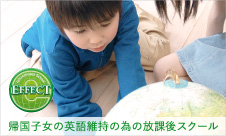
知っ得!ボキャブラリー(vol.2-1):英語の歴史(古英語・中英語時代:5世紀〜15世紀頃)
この記事は結婚により退社したロペス愛先生が書いたものです。
*****************************************
英語の単語ってなんでこんなに覚えにくいんだろう?特にスペルとか。。thとか言いにくいし。微妙にしか意味違わない単語ってまとめちゃえばいいのに。。
Examples of Old English words
Words from French: Government,
http://www.collinsdictionary.com/words-and-language/word-origins/words-from-french,9,HCB.html
◆Law and Warfare
attorney from the Old French atourné fee from the original French word fie, 14th Century finance from finer to end or settle by payment guard from garde, 15th Century inherit from Old French enheriter, 14th Century jail from Old French jaiole (meaning cage), 13th Century jury from Old French juree, originally from jurer(meaning to swear), 14th Century lieutenant from Old French, literally (meaning place-holding), 14th Century march from Old French, from Latin Martius(month) of Mars medal from French médaille, probably from Italian medaglia, ultimately from Latin metallum(meaning METAL), 16th Century mutiny from obsolete mutine, from Old French mutin (meaning rebellious), from meute(meaning mutiny), ultimately from Latin movēre(meaning to move), 16th Century parliament from Anglo-Latin parliamentum, from Old French parlement, from parler to speak, 13th Century roial from Latin rēgālis, (meaning fit for a king), from rēx (meaning king), 14th Century. soldier from Old French soudier, from soude(army) pay, from Late Latin solidus (a gold coin), 13th Century treaty from Old French traité, from Medieval Latin tractātus (meaning treaty), 14th Century
◆Cooking and Cuisine
aperitif from French, from Medieval Latin aperitīvus, from Latin aperīre (meaning to open), 19th Century bacon from Old French bacon , from Old High German bahho, 12th Century beef from Old French boef, 13th Century café from French: COFFEE, 19th Century courgette from French, diminutive of courge grape from Old French grape, 13th Century juice from Old French jus, 13th Century larder from Old French lardier, 14 Century mackerel from Anglo-French, from Old French maquerel, 13th Century menu from French menu , meaning small, detailed (list), 19th Century nutmeg from Old French nois muguede, 13th Century omelette from French omelette, changed from alumette, from alumelle (meaning sword blade), changed by mistaken division from la lemelle, from Latin; apparently from the flat shape of the omelette picnic from French piquenique, 18th Century poultry from Old French pouletrie, from pouletier(meaning poultry-dealer), 14th Century quiche from French, from German Kuchen(meaning cake) restaurant from French, from restaurer(meaning to restore), 19th Century salad from Old French salade, from Old Provençal salada, from salar (meaning to season with salt), from Latin sal (meaning salt), from 15th Century sausage from Old Norman French saussiche, from Late Latin salsīcia, from Latin salsus(meaning salted), 15th Century soup from Old French soupe, from Late Latin suppa, 17th Century spice from Old French espice, from Late Latin speciēs (plural) (meaning spices), 13th Century















